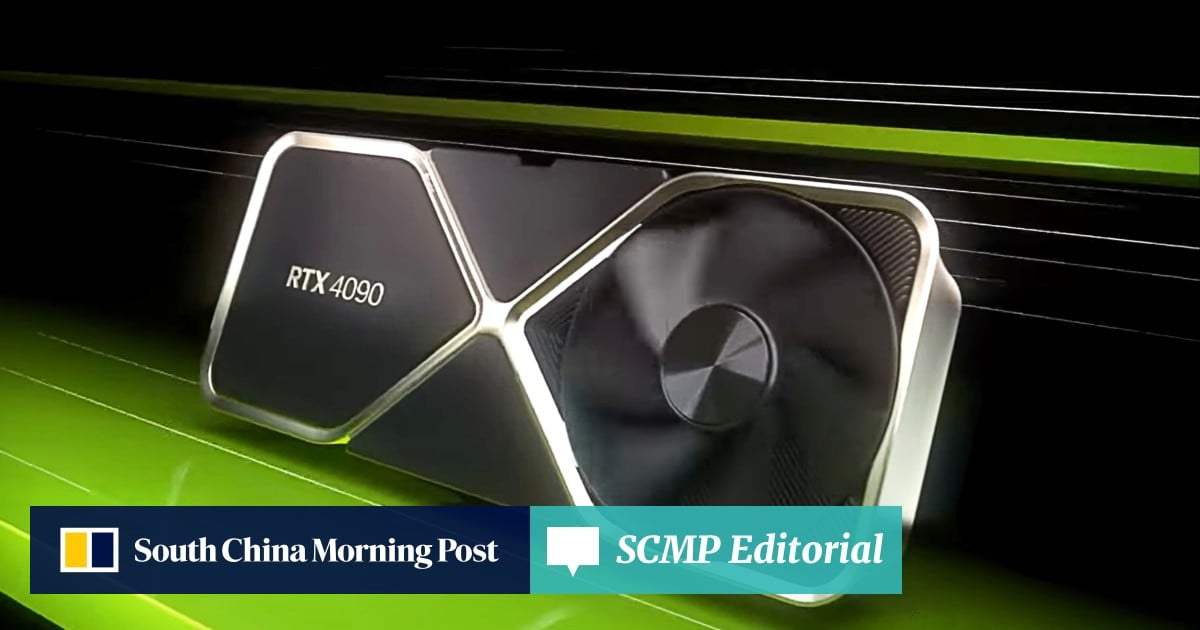
Another round of US measures meant to counter China’s technological and military rise has been put in place. It was disappointing to see the Washington-Beijing rivalry translate into more obstacles to international cooperation on technology that holds promise for improving lives globally.
The move, which follows semiconductor technology export controls imposed last October, was to close “loopholes” that allowed access to advanced chips and chipmaking tools including for artificial intelligence (AI).
US Commerce Secretary Gina Raimondo insisted on Tuesday that the controls “focus on military applications” and “threats to our national security”, reiterating fears of a “military-civil fusion strategy”.
The updated controls ban the export of China-specific Nvidia and Intel graphic processing units (GPUs). After last year’s ban, Nvidia started offering tailor-made, less-powerful alternatives to its Chinese clients. The timing of the US announcement is worth noting, coming just weeks before the Apec leaders’ summit in San Francisco. Officials on both sides still hope to arrange a long-overdue meeting between US President Joe Biden and President Xi Jinping. AI is emerging as a key area of competition with each side racing to set global rules and standards.
US chip restrictions spark panic in China for Nvidia’s RTX 4090 graphics card
US chip restrictions spark panic in China for Nvidia’s RTX 4090 graphics card
As the US chip measures were unveiled, Xi was welcoming world leaders to Beijing for the third Belt and Road Forum for International Cooperation, marking the 10-year anniversary of its flagship outbound investment plan. China proposed a Global AI Governance Initiative framework for artificial intelligence, calling for “equal rights” on development regardless of a country’s political systems.
Meanwhile, Nvidia seems to be on the hunt for new markets. The world’s largest electronics contract manufacturer on Wednesday announced it will work with Taiwan-based Foxconn Technology Group to build new data centres called “AI factories” to develop applications including self-driving cars.
It is important to consider the value of Beijing’s call for nations to uphold mutual respect when developing AI. It is an approach that holds the most promise for advancements that benefit all.
US ban on tailor-made Nvidia and Intel chips hits Beijing’s AI ambitions
US ban on tailor-made Nvidia and Intel chips hits Beijing’s AI ambitions
China is among many nations determined to explore AI opportunities despite market obstacles. And as AI technology evolves, there are legitimate concerns about nations not being on the same page about how it is used and standards to be followed.
For now, with competition throwing up market barriers, industry players in Hong Kong and around the world must do their best to keep lines of international communication as open as possible.
